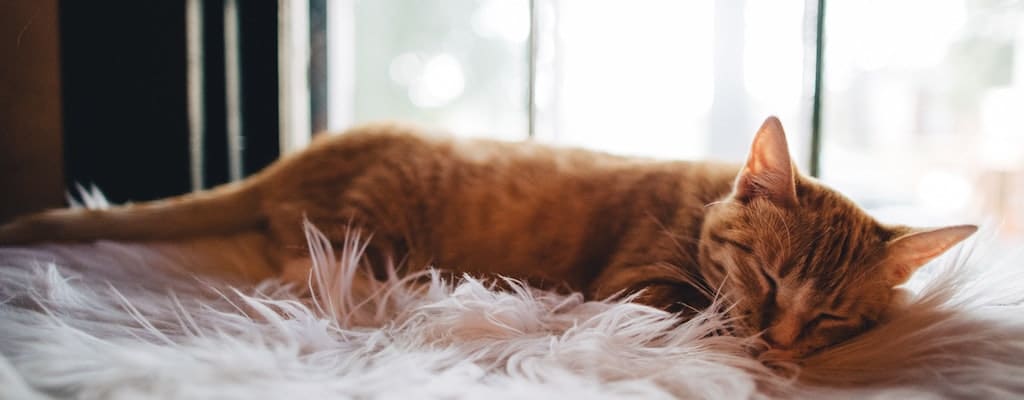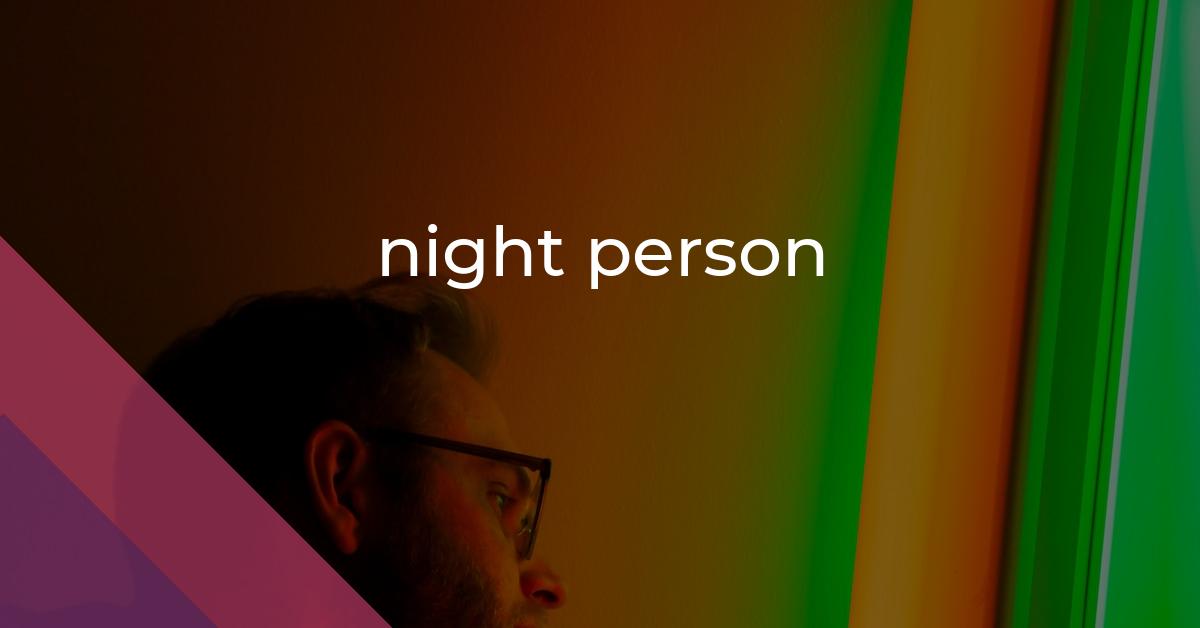night person: Idiom Meaning and Origin
What does ‘night person’ mean?
The idiom "night person" refers to someone who is more active, productive, or alert during the nighttime hours as opposed to the daytime. This term is often used to describe individuals who prefer working, studying, or engaging in activities during the night instead of during the day.

Idiom Explorer
The idiom "thief in the night" means someone who acts stealthily or unexpectedly, often taking advantage of a situation without being noticed or detected.
The idiom "rush hour" refers to the busy period of the day when traffic is most congested due to people traveling to or from work. It is characterized by heavy traffic and often results in longer travel times.
The idiom "round the clock" means continuously or without stopping, emphasizing the full 24 hours of a day.
An idiom often used to describe a person who is disliked or considered bad, with negative qualities or behavior.
The idiom "pull an all-nighter" means to stay up all night working or studying without sleeping.
The idiom "party animal" refers to someone who enjoys attending and participating enthusiastically in parties or social events. This person is known for their lively and energetic behavior and is often the life of the party.
An idiom used to refer to a particular person's character, occupation, or role, highlighting its uniqueness and individuality.
The idiom "on the go" means to be busy or occupied with various activities or tasks, without much time for rest or relaxation.
The idiom "on the clock" means being paid for the time spent working. It implies that a person is actively engaged in their job responsibilities and under the time constraint of their employer.
The Nocturnal Metamorphosis
The idiom "night person," also known as a "night owl," is commonly used in American English to describe individuals who are more active and alert during the nighttime hours compared to the daytime. These individuals exhibit a preference for being awake, engaged, and productive at night, while they may have reduced energy or productivity during the day. The term "night owl" is often used interchangeably with "night person" to describe this tendency.
On the other hand, the term "day lark" is used to describe individuals who exhibit the opposite characteristics. A "day lark" is someone who is most awake, alert, and productive during the early hours of the day. This contrast between "night person" and "day lark" allows for a classification of individuals based on their preferred time of day for peak activity.
The concept of being a "night person" or a "day lark" is closely related to an individual's internal body clock, also known as the circadian rhythm. Each person's circadian rhythm is unique, leading to differences in energy levels, productivity, and alertness at different times of the day. Some individuals naturally lean towards being more active and alert during nighttime hours, while others are more oriented towards early mornings. The idiom "night person" or "night owl" can be used to conveniently describe these tendencies based on an individual's circadian rhythm.
It is important to note that being a "night person" or a "night owl" does not necessarily imply a preference for engaging in nocturnal activities, such as staying up late or partying. Instead, it refers to an individual's inherent alertness and productivity during the night hours as opposed to daytime. This characteristic can manifest in various areas of life, including work, studies, and personal routines.
The prevalence of nighttime professions or activities in various industries has likely contributed to the widespread usage and understanding of the idiom "night person" or "night owl." Many jobs, such as security, healthcare, hospitality, and entertainment, require individuals to be active and attentive during nighttime hours. These professions often attract individuals who naturally thrive during the night and find their peak productivity during those hours. The idiom "night person" or "night owl" has emerged as a way to describe and acknowledge these individuals' unique characteristics.
It is worth mentioning that being a "night person" is not inherently positive or negative. While some people find their peak productivity during the night, others may struggle to adapt to a nighttime-oriented lifestyle due to societal norms or personal preferences. Additionally, factors such as health conditions, work schedules, and family commitments can significantly influence an individual's ability to embrace or adapt to being a "night person" or a "night owl."
The idiom "creature of the night" is another expression related to the concept of a "night person." It is often used to describe individuals who not only prefer the night hours for their productivity but also thrive in nocturnal environments. A "creature of the night" is someone who is often seen as more comfortable and alive during the dark hours, finding solace and inspiration in the quiet and calm of the night.
The idiom "night person" or "night owl" is commonly used in American English to describe individuals who are more active and productive during the nighttime hours compared to the daytime. It represents a contrast to the term "morning person" or "day lark" and is rooted in variations in individuals' natural circadian rhythms. While the exact origins of the idiom remain unclear, its usage has become ingrained in the language, reflecting the different preferences and tendencies people have regarding their peak activity times. The idiom encompasses a range of personal characteristics, which can be influenced by societal factors, personal choices, and individual circumstances.
Example usage
1. She has always been a night person, staying up late and being most productive during the late hours.
2. As a night person, he finds it difficult to function in the mornings and prefers to do his work later in the day.
3. Despite being a night person, he had to adjust to a morning job and struggled with waking up early.
More "Sleep" idioms



